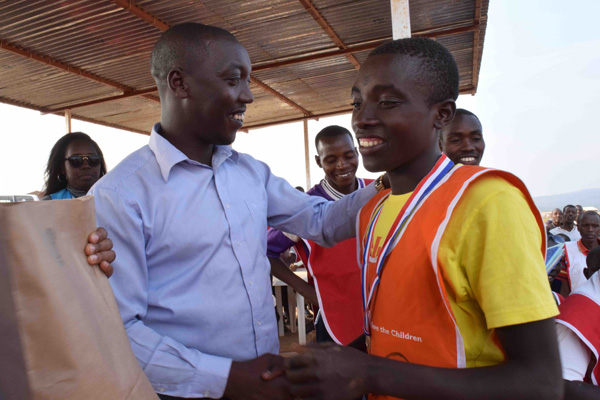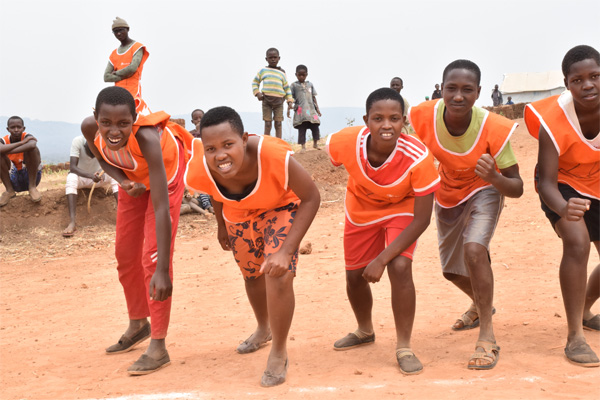Children and youth in Mahama Refugee Camp ran against drug abuse on 27th and 28th July

“There are some youth who take drugs here in the camp. It is their choice, but it is not the right one. I am sure they cannot come to the competition like this one, because they can’t even run two metres,” said Abdoul (not his real name), 17, after winning the competition in boys’ category of his age.
“I like sport. I am good at football, which I like very much. When I heard about the competition, I came to try and see if I can make it. Now I won the competition and got a gold medal.”
300 hundred children and youth participated in the race under the theme: “All Youth Against Drug Abuse.” Boys and girls aged 14 to 17 ran 3km while those aged 17 to 22 ran 6km.
“We need you to go back in Burundi healthy. You don’t need to take drugs,” said Adelithe Mugabo, Save the Children’s child protection coordinator. “Drugs are not only harmful to your life but also affects your family and loved ones. When you use drugs, you cannot attend competitions like this, you cannot study well and eventually, your future is at risk. Spread the message on the negative effects of drugs to your friends.”

Sarah*(not her real name), 15, P6, won the competition and got a golden medal and other rewards of recognition and encouragement. She said: “I want to go higher and become a world athletic champion,” she said. “I am very happy as it is my first time being awarded a gold medal. I couldn’t believe it! I didn’t feel any pain all the way and I am okay now. I want to continue doing exercises because it is not only helping me to be fit but also to be a professional.”
Alfred Twahirwa, Save the Children’s Field Manager said: “You are strong and you can do much better. There are many talents among you that can help you to reach higher. But you cannot have a brighter future if you use drugs. We stand ready to support you in whatever way we can.”
Mahama Refugee camp is home to nearly 50,000 Burundian refugees, half of them children. Save the Children is supporting the most deprived and vulnerable in areas of Child Protection, Community Services, Health and Nutrition, and Education for Out-of-School Children and Youth.
 Rwanda
Rwanda